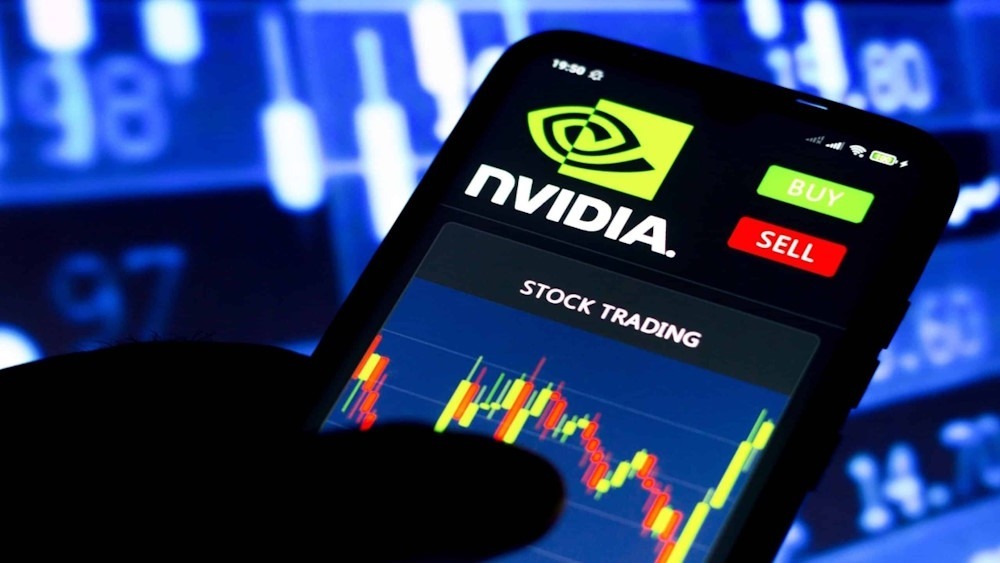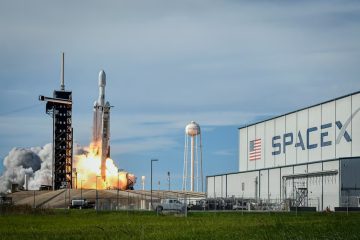Almost $4 trillion, Nvidia is again the most valued company

Nvidia approaches a $4 trillion valuation, regaining its position as the most valuable company. Two years after Nvidia Corp. made history by becoming the first chipmaker to achieve a $1 trillion market capitalization, an even more remarkable milestone is within its grasp: becoming the first company to reach $4 trillion. Following the debut of China’s DeepSeek, which caused a significant drop in stock prices earlier this year and raised worries about a potential slowdown in investments in artificial intelligence infrastructure, Nvidia shares have rebounded to achieve a new record high.
The largest clients continue to advance their expenditures, a significant portion of which is directed towards its computing systems. A 67 per cent increase from an April low has elevated its market capitalization to $3.8 trillion, surpassing Microsoft Corp. at $3.7 trillion, thus reclaiming the title of the world’s most valuable company. Nvidia shares experienced a 1.8 per cent increase on Friday, closing at yet another record high. As a diverse customer base eagerly seeks Nvidia’s latest AI accelerators, and with competitors lagging behind, optimistic investors are wagering that the chipmaker’s shares have significant potential for growth.
“We believe that Nvidia is truly uniquely positioned, and that it will sustain its position over the next decade-plus,” stated Aziz Hamzaogullari, founder, chief investment officer, and portfolio manager of the growth equity strategies team at Loomis, Sayles & Co. Hamzaogullari is not isolated in this context. This week, Loop Capital analyst Ananda Baruah elevated Nvidia’s price target to $250 from $175, a figure that would correspond to an approximate $6 trillion market capitalization. Baruah, maintaining a buy rating on the stock, anticipates that annual AI expenditure from diverse customer segments will approach $2 trillion by 2028. “While it may seem fantastic that Nvidia fundamentals can continue to amplify from current levels, we remind folks that Nvidia remains essentially a monopoly for critical tech, and that it has pricing (and margin) power,” Baruah wrote in a research note on June 25.
The optimistic outlook surrounding Nvidia and other producers of AI equipment marks a significant turnaround from earlier this year, when the rise of sophisticated chatbots such as DeepSeek, created at a low cost in China, raised concerns that Nvidia’s clientele would reduce their expenditures. Instead, US tech giants are investing significantly more capital into computing infrastructure.
Microsoft, Meta, Amazon and Alphabet are expected to allocate approximately $350 billion towards capital expenditures in their forthcoming fiscal years, an increase from the $310 billion projected for the current year, based on the average of analyst estimates gathered by Bloomberg. These companies represent over 40 percent of Nvidia’s revenue.
Undoubtedly, numerous risks remain that could impede Nvidia’s rally. The company depends on Taiwan Semiconductor Manufacturing Co. for its chip production, thereby subjecting Nvidia to the unpredictable nature of US President Donald Trump’s trade policies, which can shift suddenly. Trump’s 90-day suspension of the most stringent tariffs is scheduled to conclude on July 9. Simultaneously, there is no assurance that Nvidia’s largest clients will not alter their approach to expenditure in the years ahead. A considerable number of companies are creating their own chips to circumvent the high costs associated with Nvidia.
“The valuation depends on the persistence of growth, and we already know that Nvidia’s largest customers are trying to figure out ways to be more efficient with their spending, not just with Nvidia, but also offloading to their own silicon,” said Dan Davidowitz, chief investment officer at Polen Capital Management. “One must possess highly resilient assumptions to feel at ease with the valuation, and currently, we lack a sufficiently clear perspective on the nature of that demand.”
Nvidia shares are currently valued at 32 times the earnings anticipated over the forthcoming 12 months, in contrast to the S&P 500, which stands at 22 times. The stock’s valuation does not concern Loomis Sayles’s Hamzaogullari, who is a staunch advocate for the transformative potential of AI and is confident that Nvidia will continue to be a significant beneficiary as productivity enhancements from the technology proliferate. “That doesn’t mean it will be steady Eddie all the time, that there won’t be disruptions in spending, but this is a secular structural change, and Nvidia remains one of the biggest beneficiaries,” Hamzaogullari said. “The stock still appears appealing considering that context.”
Julie Young
Julie Young is a Senior Market Reporter and Analyst. She has been covering stock markets for many years.








